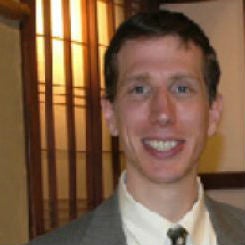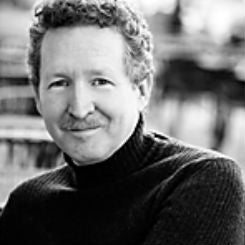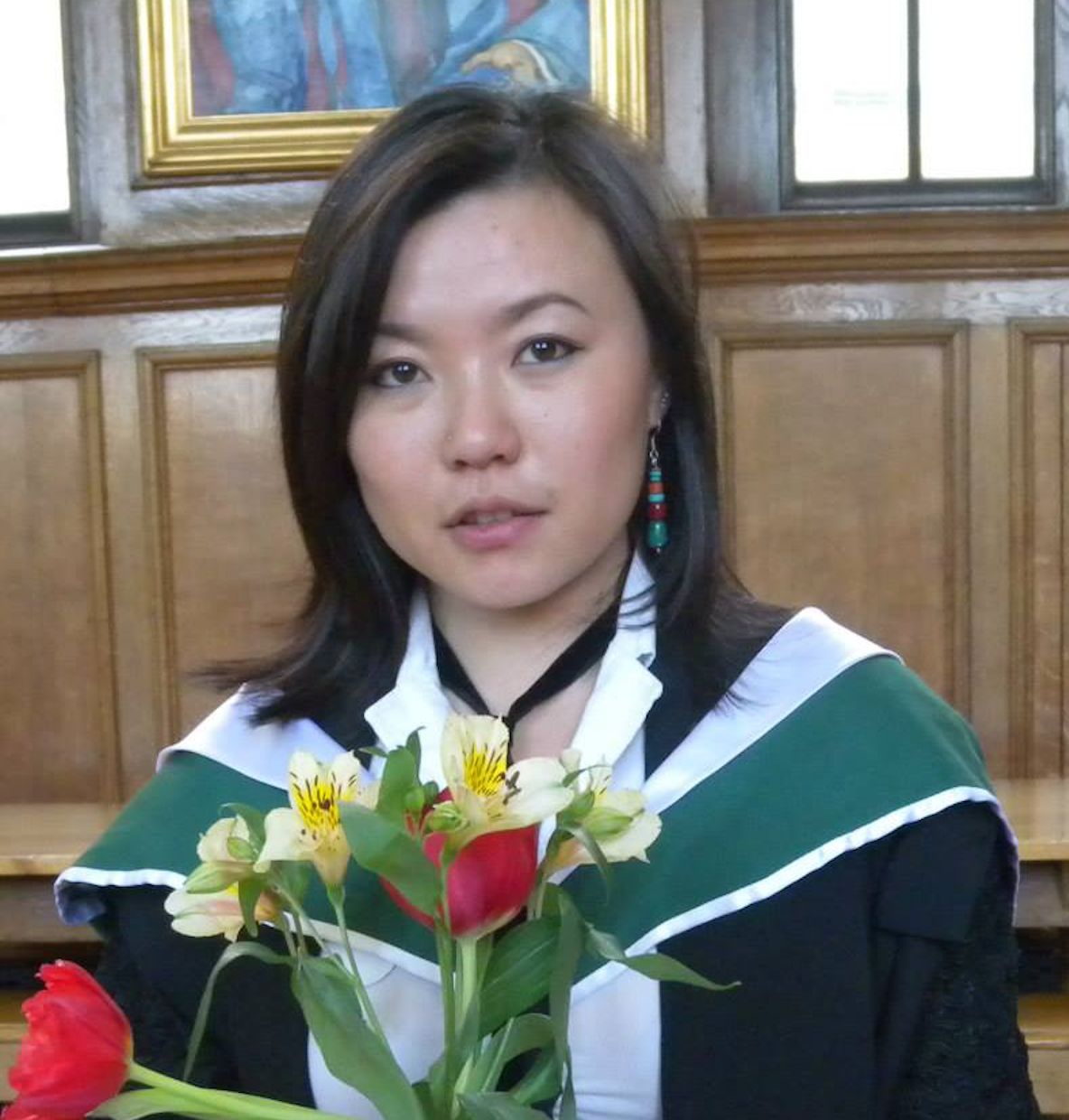
Juhn Ahn
Assistant Professor of Buddhist and Korean Studies
- East Asian Buddhism
- Buddhism and Illness/Death
- Korean Literature
Bio
I study death, illness, and Buddhism in East Asia. In my doctoral thesis I examined something called the “malady of meditation.” This is a “malady” or “defect” that continued to trouble Buddhist meditators in East Asia for centuries. I was particularly interested in the transformation of this malady or defect over time. In a number of different publications I tried to explain this transformation by situating the changing views of the malady of meditation in their proper historical contexts. I focused specifically on two Buddhist monks who spoke extensively about the malady of meditation: the Chinese Buddhist monk Dahui Zonggao (1089-1163) and the Japanese Buddhist monk Hakuin Ekaku (1686-1769). What drew me to these two towering figures of Chan and Zen is not only the critical role that they played in shaping the discourse about the malady of meditation but also their efforts to use the malady to make sense of problems associated with changing habits of reading among students of Chan and Zen.
Current projects:
My current research focuses on the relationship between Buddhist mortuary practices and elite identity formation in fourteenth century Korea. A small but growing number of families that belonged to the late Koryŏ elite began to abandon Buddhist mortuary practices, which they associated with waste and decadence, in favor of Neo-Confucian mortuary practices and in my recent publications I try to explain why. Using, among other things, officials histories, biographies, funerary inscriptions, commemorative steles, and literary collections I try to draw a connection between the rise of this rhetoric of decadence, the gradual shift in the cultural construction of elite identity during the late Koryŏ, and the influx of new social elements under Mongol rule.
Teaching interests:
At the undergraduate level I teach courses about premodern and modern Korean history and religion. I also teach courses about East Asian Buddhism, Zen, contemporary controversies in Korea, life and death in megacities or great cities in Asia, and love in Korean literature and film. I also teach immersive learning courses, which take place in Seoul Korea.

Micah Auerback
Associate Professor of Japanese Religion
- Japanese Buddhism
- Korean Buddhism
- Narratives of the Buddha's Life
Bio

Benjamin Brose
Associate Professor of Chinese Buddhism
- Chan/Zen
- Chinese Religions
- Literature and Liturgy
Bio
I work on the history of religion in China. My recent research has focused on two transformational historical eras—the late ninth through the early eleventh centuries and the twentieth century—in an attempt to better understand the relationships between social, cultural, and political change and the development of religious doctrines and practices. My first book, Patrons and Patriarchs: Regional Rulers and Chan Monks during the Five Dynasties and Ten Kingdoms (University of Hawai’i Press, 2015), examined the tumultuous century that spanned the collapse of the Tang dynasty (618–907) and the consolidation of the Northern Song dynasty (960–1127). I attempted to resolve two closely related issues in the field of Chinese Buddhist studies. The first is how Chan (a.k.a. Zen) clerics, who represented a relatively minor undercurrent in mainstream Buddhism during the Tang dynasty, rose to become some of the most culturally and politically significant clerics of the Northern Song. The second is the extent to which the Chan institutions and traditions of the early Northern Song—which were later transmitted to Japan, Korea, and Vietnam—derived from developments in southeastern China during the Five Dynasties and Ten Kingdoms.
I have explored other facets of Chinese Buddhism during the Five Dynasties and Ten Kingdoms in a series of articles. “Crossing Ten-Thousand Li of Waves” (Journal of the International Association of Buddhist Studies, 2008) examines the loss and recovery of an important corpus of Tiantai Buddhist texts against the backdrop of pilgrimage and the circulation of material culture in China, Korea, and Japan. “Credulous Kings and Immoral Monks”(Asia Major, 2014) reevaluates the state of the Buddhist clergy in China after the fall of the Tang dynasty in light of polemical accounts written by later generations of Chinese scholar-officials. Finally, “Disorienting Medicine”(Journal of Chinese Buddhist Studies, 2015) is a study and annotated translation of a leading tenth-century cleric’s critique of the Chan monks of his generation.
Current projects:
My current research looks at the transmission and adaptation of Chinese Buddhist cultures in other parts of Asia, the evolution and malleability of hagiographical narratives, and the history of religious traditions in modern China. A second book project, provisionally titled Embodying Xuanzang: A Medieval Monk in the Modern Imagination, examines recent representations of the seventh-century Buddhist cleric, pilgrim, and scholar Xuanzang 玄奘 (600/602–664). My intention is to document and interpret instances where Xuanzang has been re-embodied—by means of spirit mediums, relics, rituals, and icons—during the nineteenth and twentieth centuries primarily in mainland China, but also in Taiwan, Japan, and India.
Teaching interests:
At Michigan, I teach a range of courses at both the undergraduate and graduate levels. My regular course offerings include “Zen Buddhism: History, Culture, and Critique,” “Gods, Ghosts, and Gangsters: Popular Religion in China,” “Buddhism and Death,” and “Zen Masters, Dharma Bums, and Drag Queens: Buddhism in America.” I also teach courses on the reinvention of religion in modern Asia, Qing dynasty and Republican era Buddhism in China, reading Buddhist texts (in Chinese), and systems of self-cultivation in China.

Kevin Carr
Associate Professor of Art History
- East Asian Buddhist Art
- Japanese Art History
Bio

Madhav Deshpande
Professor Emeritus of South Asian Literature and Linguistics
- Indian Philosophy
- Sanskrit
- Hindu Traditions
Bio
Madhav M. Deshpande is an emeritus professor of Sanskrit and Hindu Studies at the Department of Asian Languages and Cultures, jointly appointmented in the Department of Linguistics. Originally trained in traditional and modern Sanskrit scholarship in Pune, India, Deshpande earned his B.A. (1966) and M.A. (1968) in Sanskrit from the University of Pune, and his doctorate in Oriental Studies from the University of Pennsylvania (1972). He joined the faculty of the University of Michigan since 1972. His research relates to the fields of the Sanskrit grammatical tradition, historical linguistics and sociolinguistics of Indo-Aryan languages, and the religious and philosophical traditions of India, including Hinduism and Buddhism. He has published fifteen books and over 150 research papers relating to these areas.
Publications:
-Samskrtasubodhini: A Sanskrit Primer
-Sociolinguistic Attitudes in India: A Historical Reconstruction
-The Meaning of Nouns: Semantic Theory in Classical and Medieval India
Field(s) of Study:
Historical linguistics
Sanskrit grammatical tradition
Sanskrit phonetics
Indo-Aryan linguistics
Sociolinguistics of Sanskrit and Prakrit languages

Donald S. Lopez, Jr.
Arthur E. Link Distinguished University Professor of Buddhist and Tibetan Studies; Asian Languages and Cultures Department Chair
- Tibetan Buddhism
- Buddhist Philosophy
- The European Encounter with Buddhism
Bio
My publications fall into four main areas. The first is Indian Buddhist scholastic philosophy, especially of the Mahayana schools as preserved in Tibetan translation and as interpreted by Tibetan exegetes. Here, my books include A Study of Svātantrika, The Heart Sūtra Explained: Indian and Tibetan Commentaries, and Elaborations on Emptiness: Uses of the Heart Sūtra. A second area is the history of the European encounter with Buddhism and the networks of influence that developed between Asia and the West to produce what some have called “Modern Buddhism.” Here my books include Prisoners of Shangri-La: Tibetan Buddhism and the West, Buddhism and Science: A Guide for the Perplexed, and the edited volume Curators of the Buddha: The Study of Buddhism Under Colonialism. More recently, my work in this area has examined the period prior to the twentieth century. Here, my books include From Stone to Flesh: A Brief History of the Buddha, the translation from the French (with Katia Buffetrille) of Introduction to the History of Indian Buddhism by Eugène Burnouf (1801-1852), The Tibetan Book of the Dead: A Biography, and In Search of the Christian Buddha (with Peggy McCracken). A third focus is the Tibetan author Gendun Chopel (1903-1951), considered by many to be the most important Tibetan intellectual of the twentieth century, renowned as a poet, essayist, historian, philosopher, and painter. Here, my books includeThe Madman’s Middle Way: Reflections on Reality of the Tibetan Monk Gendun Chopel, In the Forest of Faded Wisdom:104 Poems by Gendun Chopel, Gendun Chopel: Tibet’s First Modern Artist, and the translation (with Thupten Jinpa) Grains of Gold: Tales of a Cosmopolitan Traveler. A fourth focus has been an effort to bring the fruits of scholarship on Buddhism to a larger audience, especially to scholars and students in other disciplines, through translations, anthologies, and reference works. Here, my books include Buddhism in Practice and Religions of Tibet in Practice (both in the “Princeton Readings in Religions” series), Buddhist Scriptures(Penguin Classics), Critical Terms for the Study of Buddhism (in the University of Chicago Press series, “Buddhism and Modernity”), Buddhism(from the Norton Anthology of World Religions), and The Princeton Dictionary of Buddhism (with Robert Buswell).
Current projects:
I am presently working on four projects. The first is a translation and study (in collaboration with Thupten Jinpa) of the refutation of Buddhism (specifically the doctrines of rebirth and emptiness)—composed in Tibetan—by the Jesuit missionary to Tibet, Ippolito Desideri (1684-1733). The second is an anthology of European descriptions of Buddhism, beginning with Clement of Alexandria in the second century CE and ending with Eugène Burnouf in 1844. The third is a translation of a compendium of Indian Buddhist doctrine by the renowned Tibetan scholar Jangkya Rolpé Dorjé (1717-1786). The fourth is a translation and study (also in collaboration with Thupten Jinpa) of the Treatise on Passion by Gendun Chopel.
Teaching interests:
In my graduate courses, I read a wide variety of Tibetan Buddhist works with students with advanced language skills. I also teach seminars open to all graduate students in Buddhist Studies (as well as other disciplines). Recent seminars have included “The History of Buddhist Studies,” “Buddhist Tantra,” and “The Life of the Buddha.” A future seminar will examine the notion of Buddhahood across the various Buddhist traditions.

Sangseraima Ujeed
Assistant Professor of Tibetan Buddhism
- Tibetan Buddhism
- Buddhism in Mongolia
- Narratives of Transmission, Transformation, and Identity Formation
Bio
Current research interests:
My primary research interests focus on the transnational, transregional, and cross-cultural aspects of Tibetan Buddhism during the Early modern period with particular emphasis on lineage, reincarnation, identity formation, knowledge transmission, and travel. My principal research goal is to explore and elucidate the hybridity of religion and identity in the wider Tibetan Buddhist world, that was in essence, highly cosmopolitan, multicultural, multiethnic, and multilingual. I am primarily a textual scholar who is methodologically invested in the ongoing discourses in Decolonialism, Transnationalism, Translation theory, Narratology, Oral Literature, and Literary theory. My research materials cover a wide range of textual genres of Tibetan Buddhist literature and Qing period archival materials composed in Tibetan, Mongolian, Manchu, and Chinese.
Some of my leading research questions include: What does the multilateral transmission of practices and teachings reveal about the relationship between different Tibetan Buddhist traditions? How were the partial societies of monastic scholasticism formed and represented, spread as they were across and grouping together vast topographies of religious institutions, language, political administration, ethnicity, and practice? How do people form transcultural identities, and how do those identities change across time and space? What is the role of language in the translation, transmission and preservation of a tradition? How should we approach the study of archives and textual collections?
Current projects:
I am currently working on a monograph based on the research conducted for my doctoral thesis titled Mirror of Lives: Tibetan Buddhism, Lineage, and Identity in the Early Modern Period, which examines Buddhist literary works composed in Tibetan and Mongolian during the seventeenth and eighteenth centuries. Mongolian monastic scholars were an inextricable part of the Tibetan Buddhist world and were amongst the most cosmopolitan and well-travelled individuals of their time. Consequently, their writings represent untapped goldmines for understanding the state of the wider Tibetan Buddhist world, as well as the religio-cultural interface between the various Himalayan and Inner Asian nations. These works continue to remain in large part untouched by academic inquiry. This book is an attempt to remedy this gap in knowledge in the field by elucidating and contextualizing their contribution to the wider Tibetan Buddhist World. Based on the data that can be mined from the texts consulted for my research to date, I am also laying down the groundwork for a collaborative digital humanities project that will result in an interactive resource which visualizes and maps transmission lineages of tantras, teachings and practices, and the interconnected biographical data regarding reincarnation and monastic networks.
Teaching interests:
My teaching interests are driven by my familiarity with and access to both the traditional and academic worlds of Buddhism, theoretical and methodological training in religious studies, and experience making and working with translations both philologically and as a translator. The topics I teach are rooted in the history, practices, doctrine, and culture of the Tibetan Buddhist Tradition. The courses I teach range from introductory survey courses to more specialized lecture and seminar series on subjects such as Life Stories of the Tibetan Buddhist Traditions, Practice and Ritual, Medicine and Healing, Tibetan Buddhism and Indigenous Religions of the Himalayas and Inner Asia, and Tibetan Buddhist Legends, Tibetan Buddhism and the Tibet Mongolia Interface, Myths and Oral Histories. My teaching style is informed by the range of methods that I was exposed to in my own academic training, such as the traditional European philological approach, the Oxbridge practice of tutorial teaching, the mainstream UK model, and the North American theory-dominated framework.



